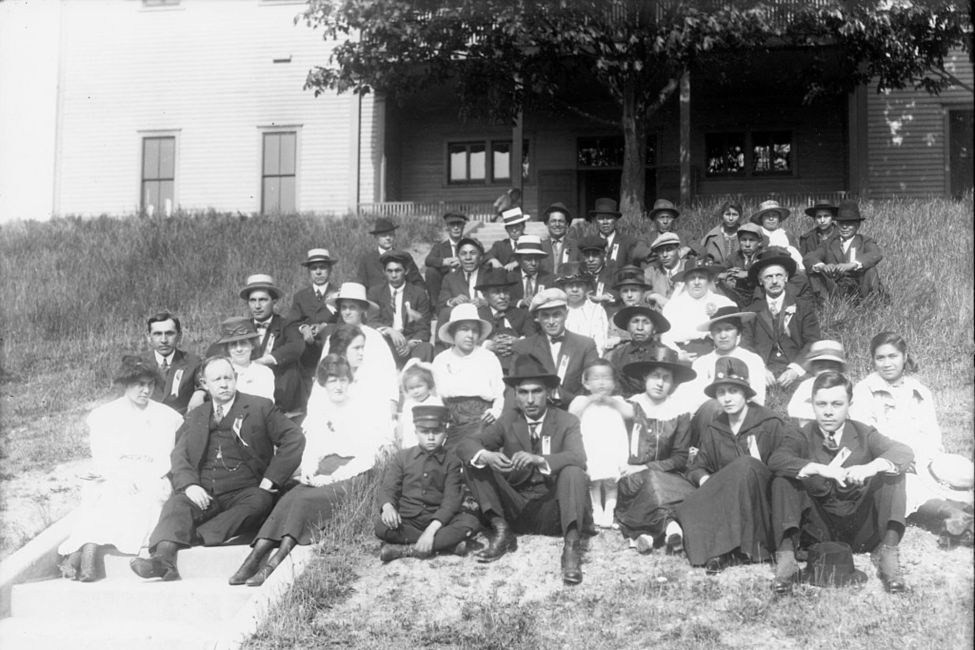
- Details
- By Jenna Kunze
Washington, a state home to 29 federally recognized tribes, hosted 17 of the nation’s more than 500 Indian Boarding Schools, according to an up-to-date list from the Native American Boarding School Healing Coalition. The institutions operated from the 1800s through 1970 with the aim to forcibly assimilate Native children into white society.
On Oct. 3, Attorney General Bob Ferguson announced the five-person committee, which includes representatives from Yakama Nation, Little Shell Tribe of Chippewa Indians of Montana, Quinault Indian Nation, Tlingit and Cowichan First Nations, and Lummi Nation.
“These schools are not just a shameful part of our history — the trauma they caused reverberates through generations of Indigenous families,” Ferguson said in a statement. “With this new committee, we start a long but essential journey toward healing.”
The committee will hold public listening sessions across the state over the next year to hear accounts from boarding school attendees and their descendants in an effort to “[uncover] the full history of Indian boarding schools in Washington,” according to a press release from Ferguson’s office. The listening sessions will begin in January 2024.
Additionally, the Tribal Advisory Committee will utilize the Department of the Interior’s Federal Indian Boarding School Investigative Report, in addition to the Native American Boarding School healing coalition’s work—to research the history of the 17 schools identified in Washington.
Deborah Parker (Tulalip), CEO of The National Native American Boarding School Healing Coalition and a tribal member based in the state, said that her organization is grateful for Washington state’s leadership in not only seeking truth but promoting healing.
“We need other states to follow suit and work with Tribes and Native communities to bring the truth about this dark history to light,” Parker said.
The committee will submit a report to the state in 2025 with recommendations on how the state can address the harm caused by Indian boarding schools and other cultural and linguistic termination practices.
More Stories Like This
Navajo Resources and Development Committee Issues Notice on Livestock Inspection RequirementsAmerican Prairie, Tribal Coalition Files Protest Over Rescinded Grazing Rights
Northern Cheyenne Push Back Against Trump Administration’s Effort to Alter Little Bighorn History
Florida Man Sentenced for Falsely Selling Imported Jewelry as Pueblo Indian–Made
Navajo Nation Declares State Of Emergency As Winter Storm Threatens Region
Help us defend tribal sovereignty.
At Native News Online, our mission is rooted in telling the stories that strengthen sovereignty and uplift Indigenous voices — not just at year’s end, but every single day.
Because of your generosity last year, we were able to keep our reporters on the ground in tribal communities, at national gatherings and in the halls of Congress — covering the issues that matter most to Indian Country: sovereignty, culture, education, health and economic opportunity.
That support sustained us through a tough year in 2025. Now, as we look to the year ahead, we need your help right now to ensure warrior journalism remains strong — reporting that defends tribal sovereignty, amplifies Native truth, and holds power accountable.
 The stakes couldn't be higher. Your support keeps Native voices heard, Native stories told and Native sovereignty defended.
The stakes couldn't be higher. Your support keeps Native voices heard, Native stories told and Native sovereignty defended.
Stand with Warrior Journalism today.
Levi Rickert (Potawatomi), Editor & Publisher


